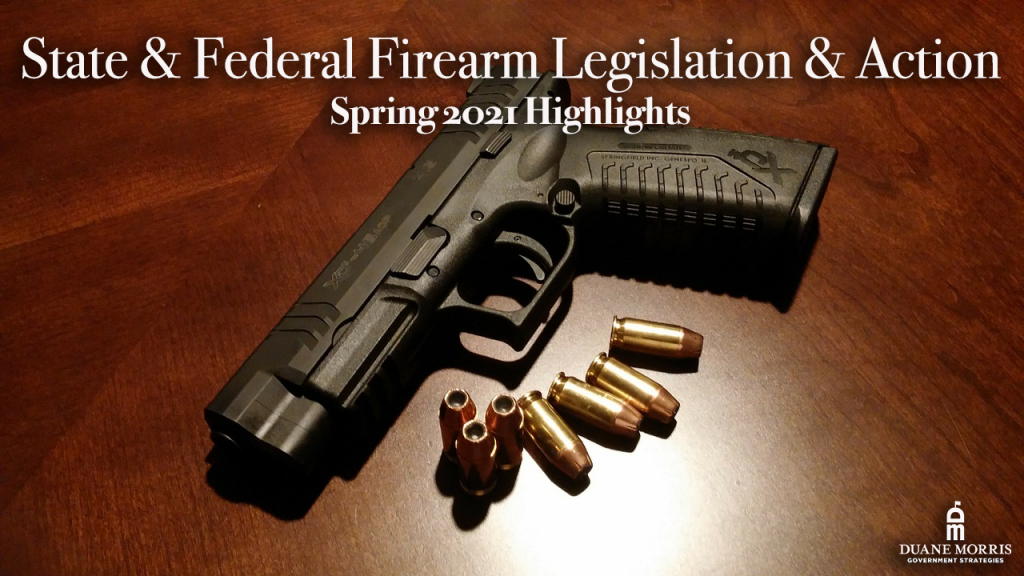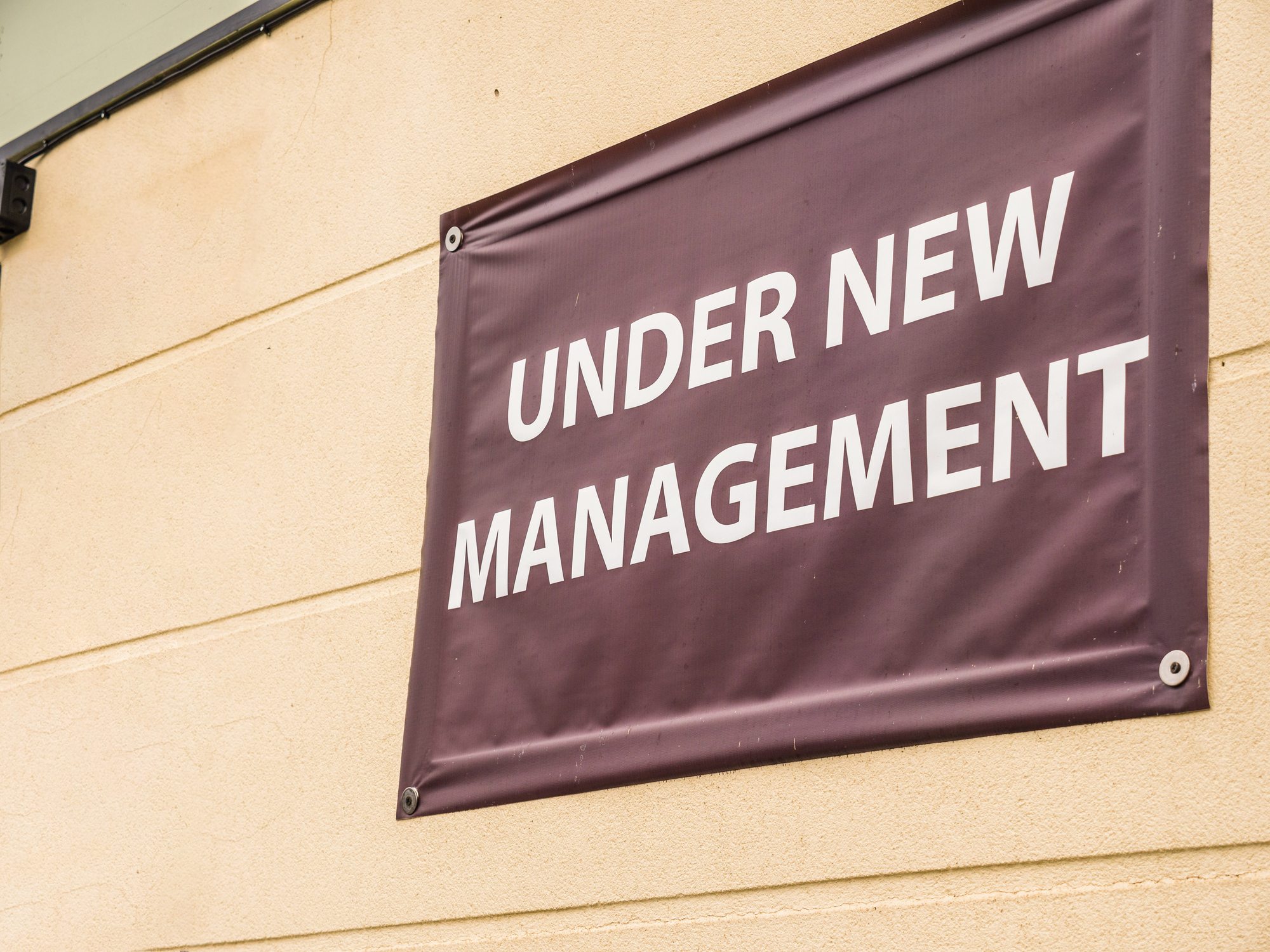
2020 saw a 25% surge in homicides and non-suicide-related shootings. There were 4,000 more firearm deaths and more than 9,000 firearm-related injuries in 2020 than in 2019. In response to the nationwide uptick in gun violence, several states and the U.S. government are considering measures to address gun violence. Many states are considering a myriad of firearm legislation, including restrictions that require the safe storage of firearms, ban “ghost guns,” or create stricter permit processes. In contrast, many states are also considering or have adopted measures to proliferate the open and concealed carrying of firearms.
Since our last update previewing 2021 and recapping the 2020 legislative sessions, there has been quite a bit of activity related to firearm legislation. DMGS also previously covered “ghost guns” specifically, another topic that has seen increased activity this year.
Federal Firearm Action
Congress is considering doubling the federal government’s portfolio of firearm violence research next year and enabling key policymakers to utilize that research. The fiscal 2022 budget that President Joe Biden proposed to Congress would increase to $50 million annual federal firearm violence research funds. The proposal to empower Congress’ Article I legislative authority with relevant data marks a shift away from its unwillingness to fund NIH and other federal agencies’ research into gun violence. That long-standing policy explicitly kept federal research agencies from comprehensively researching gun violence and effectively prohibited the study of Americans’ deaths from firearm-related injuries.
Delaware “Ghost Gun” Firearm Legislation
In Delaware, recently introduced legislation would place new restrictions on “ghost guns.” HB 125, amending the Delaware Code pertaining to firearms, defines ghost guns in several different ways.
The bill would establish the crime of possession of several different firearms—an unfinished firearm frame or receiver with no serial number, a covert or undetectable firearm, an untraceable firearm, and the manufacturing or distribution of a firearm produced via a three-dimensional printer. Additionally, the bill would criminalize carrying a firearm with a serial number that was altered or removed somehow. The bill would exempt military members and state police officers who are legally authorized to carry untraceable firearms.
The bill has passed the Delaware State House and has been assigned to the Senate Judiciary Committee.
New Jersey Safe Storage Bill
A recently introduced bill in the New Jersey Assembly, Assembly Bill 5647, would establish new guidelines for the safe storage of firearms. The “New Jersey Safe Storage of Firearms Act,” A5647 establishes that a legal gun owner must secure a firearm that is not in use under the person’s control, unloaded, and in a gun safe or secured, locked container. Ammunition would also be required to be stored separately in another secured, locked container.
The bill outlines several penalties for legal firearm owners who fail to secure their firearms properly. For a first offense, a gun owner would be required to fulfill between 10 and 40 hours of community service with an entity approved by the Attorney General, which focuses on preventing gun violence. A subsequent offense would result in the person being charged with a disorderly person’s offense.
Additionally, Assembly Bill 5647 would require the Attorney General to establish a public awareness campaign about the bill’s contents. The campaign would include additional information about the bill’s provisions and penalties, as well as the dangers of loaded, unsecured firearms. Also, the bill appropriates an additional $500,000 to fund the campaign’s development.
New York “Ghost Gun” Firearm Legislation
Like New Jersey, several bills were introduced in the New York State Assembly and Senate to tackle “ghost guns.” In the State Senate, S.B. 13 and S.B. 14 were passed in early February. S.B. 13 would prohibit the possession of weapons with unfinished receivers by anyone other than a gunsmith. A crime of first, second, and third-degree would be established for the sale of a weapon with an unfinished receiver or frame.
S.B. 14 would criminalize the possession of guns without a finished serial number by anyone other than a gunsmith. The sale of such weapons would be entirely prohibited under New York state law. Additionally, the bill would require anyone assembling a firearm to be a licensed gunsmith. A613 was introduced in the State Assembly and referred to the Committee on Rules. The bill would do the same as S.B. 14.
Upon passing the Senate in early February, both Senate Bills were returned from the State Assembly to the Senate to be amended.
South Carolina Open Carry Firearm Legislation
In South Carolina, HB 3094, “Open Carry With Training Act,” amended several areas of the South Carolina Code pertaining to concealable weapons to allow licensed owners to carry firearms openly. Under the bill, a “concealable weapon” is defined to include certain firearms that may be carried on one’s person. The bill also permits a person with a concealed carry license to carry it openly on his or her person and in a vehicle.
The bill also attempts to prohibit South Carolina and its localities from taking any legislative or executive action to implement or enforce a federal regulation that would limit individual rights under the U.S. Constitution’s Second Amendment. Suppose the South Carolina Attorney General opines that a federal law, treaty, executive order, rule, or regulation purports to compel state legislative or executive action regarding the Second Amendments. In that case, the bill allows the state to refuse to enforce it.
HB 3094 passed the State House and Senate and was signed into law by Governor Henry McMaster on May 17, 2021.
North Carolina Permit Bill
HB 398, a bill that would amend the pistol permit process in North Carolina, passed the State House on May 5, 2021, and has been referred to the Senate Committee on Rules and Operations. The bill would repeal the requirement to obtain a pistol purchase permit from a local sheriff’s office before purchasing or transferring a pistol.
The North Carolina Code requires that individuals purchase a pistol permit from their sheriff’s office unless they have a concealed carry permit. Failure to do so results in a class two misdemeanor. Before issuing a pistol permit, the sheriff’s office must conduct a background check through the National Instant Criminal Background Check System (NCIS) to determine if the purchaser is of good moral character and establish that the purchased weapon will be used only for identified purposes.
Under the new bill, without issuing the state permit from a local sheriff’s office, federal law still requires federal firearm licensees (FFLs) to conduct a background check of the purchaser through the NCIS.
Texas Permitless Carrying Legislation
People would be allowed to carry handguns without needing state permits under a bill advanced by Texas lawmakers, sparking concern from law enforcement about combating violent crime and the state’s recent history of mass shootings. The Texas Senate voted 17 to 13 to approve changes in a House-passed compromise version of the bill (H.B. 1927). It now heads to the desk of Governor Greg Abbott, who has said he would sign the legislation. Lawmakers approved the bill despite opposition from the Texas Municipal Police Officers Association and several law enforcement representatives that had testified against it earlier in the legislative process.
The final version of the legislation would increase to five years the maximum penalty for a felon caught carrying a gun. Gun owners would still need to pass a federal background check before buying a weapon. The measure would not increase the number of places guns would be allowed. The purchase of guns from a federally licensed retailer requires a background check, but person-to-person sales in Texas do not.
Latest News
Photo credit: iStock.com/Nastco The intersection of artificial intelligence (AI) and public safety is rapidly evolving, with state legislatures across the country considering policies related to AI-driven firearm detection technology, something we covered on our podcast [...]
In the latest episode of the "Back in Session" podcast, hosts Ryan Stevens and Ryan DeMara delve into the innovative world of AI technology applied in gun detection with Burgess Nichols from ZeroEyes. Starting with [...]
Photo credit: iStock.com/FORGEM State lawmakers are considering legislation to address individuals driving under the influence. Across most states, the existing blood alcohol concentration (BAC) threshold sits at .08 grams of alcohol per deciliter (g/dL). However, [...]
Photo credit: iStock.com/yevtony Last week, the National Governors Association (NGA) elected Utah Governor Spencer Cox (R) as its new Chair and Colorado Governor Jared Polis (D) as NGA Vice Chair. Cox succeeds New Jersey Governor [...]






Stay In Touch